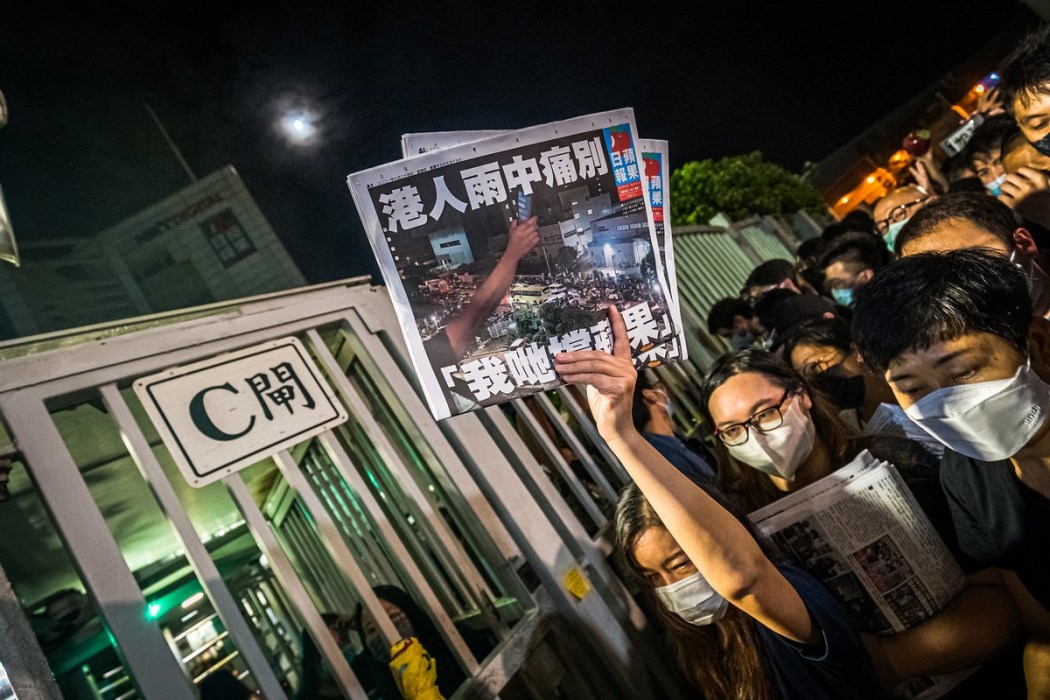Hong Kong journalist Bao Choy has vowed to “monitor the rich and powerful” and “seek truth” with her newly launched media outlet The Collective HK.
Her comments came as the former RTHK producer awaits to challenge her conviction over accessing car registration information for an investigative documentary about the 2019 Yuen Long mob attack at the city’s top court in May.

The Collective HK, co-founded by Choy and veteran journalist Ken Lui Tsz-lok, published a founding statement on Sunday. Citing the arrests of journalists and the closure of media organisations in Hong Kong, the news platform said journalists were “finding a way out” amid an era when press freedom was “collapsing.”
It made reference to the city’s latest press freedom ranking by media rights watchdog Reporters Without Borders, which plummeted 68 places to 148th last year.
Despite the decline in press freedom, Choy and her team said new media outlets had emerged in a bid to “continue the mission of the media” and “write the first draft of history.” They pledged to provide in-depth reporting and news analysis each week and follow up on issues concerning public interests, saying the platform would “monitor the rich and powerful” and “seek truth” professionally and fairly.
“We have noticed that in a new era where information are becoming more fragmented, and voices in society are becoming more monotonous, general readers are less willing to read the news,” The Collective HK wrote on Facebook.
“But we believe that news is closely linked to the people’s life and well-being and public interest, and the profession of journalism needs to be passed on,” it added.
Choy made headlines in November 2020, when she was arrested in connection with the use of car license plate records in an episode of RTHK’s Hong Kong Connection about the attacks in Yuen Long on July 21, 2019.
The 22-minute documentary uncovered details about the incident which saw over 100 rod-wielding men storm Yuen Long MTR station and left 45 people injured – including journalists, protesters, commuters and then-legislator Lam Cheuk-ting, of the Democratic Party.
Police were criticised for responding slowly to the incident, with some officers seen leaving the scene or interacting with the white-clad men. The official account of the incident evolved over a year, with the authorities eventually claiming it was a “gang fight.”
Choy, who was a freelance producer for the public broadcaster, was later charged with two counts of making false statements to obtain vehicle records. She was found guilty and fined HK$6,000 in April 2021. She lost an appeal against her conviction in November last year, but the Court of Final Appeal agreed last month to hear her case on May 3, which is also World Press Freedom Day.

Freedom of the press in Hong Kong has come under the spotlight since the onset of the Beijing-imposed national security law in June 2020. In 2021, two pro-democracy media organisations Apple Daily and Stand News were forced to close after their newsrooms were raided and senior staff arrested for national security and sedition charges.
Chief Executive John Lee, however, has stressed that press freedom was “adequately protected” under the Basic Law, while the government repeatedly stated that such rights were “not absolute.”
Support HKFP | Policies & Ethics | Error/typo? | Contact Us | Newsletter | Transparency & Annual Report | Apps
Help safeguard press freedom & keep HKFP free for all readers by supporting our team

LATEST FROM HKFP
HKFP has an impartial stance, transparent funding, and balanced coverage guided by an Ethics Code and Corrections Policy.
Support press freedom & help us surpass 1,000 monthly Patrons: 100% independent, governed by an ethics code & not-for-profit.










